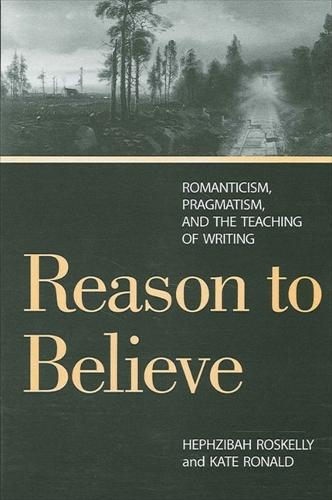Full Product Details
Author: Hephzibah Roskelly ,
Kate Ronald
Publisher: State University of New York Press
Imprint: State University of New York Press
Dimensions:
Width: 15.20cm
, Height: 2.50cm
, Length: 22.90cm
Weight: 0.290kg
ISBN: 9780791437964
ISBN 10: 0791437965
Pages: 187
Publication Date: 10 July 1998
Audience:
College/higher education
,
Undergraduate
Format: Paperback
Publisher's Status: Active
Availability: Out of stock

The supplier is temporarily out of stock of this item. It will be ordered for you on backorder and shipped when it becomes available.
Reviews
""'How does the history of thinking about education and learning and spiritual understanding in this country...connect to the work of teachers now?' This is the question that Hephzibah Roskelly and Kate Ronald boldly raise in Reason to Believe. They show, in graceful and impassioned prose, that by honoring the romantic and pragmatic traditions of the American past, English studies in general and composition theory in specific can be revitalized. Guided by Thoreau and Emerson in the nineteenth century and by Paulo Freire and Cornel West in the twentieth century, the authors challenge the cynicism and hopelessness that currently exist among prominent literary critics and demonstrate their self-defeating consequences. Reason to Believe affirms the intimate connection between theory and practice, intellect and action, and shows how teaching extends beyond the classroom into the arena of life. To the question 'Is teaching still possible?' the authors' answer is a resounding yes. Roskelly and Ronald truly give us a reason to believe in the value of reading, writing, and teaching."" - Jeffrey Berman, University at Albany, State University of New York
'How does the history of thinking about education and learning and spiritual understanding in this country...connect to the work of teachers now?' This is the question that Hephzibah Roskelly and Kate Ronald boldly raise in Reason to Believe. They show, in graceful and impassioned prose, that by honoring the romantic and pragmatic traditions of the American past, English studies in general and composition theory in specific can be revitalized. Guided by Thoreau and Emerson in the nineteenth century and by Paulo Freire and Cornel West in the twentieth century, the authors challenge the cynicism and hopelessness that currently exist among prominent literary critics and demonstrate their self-defeating consequences. Reason to Believe affirms the intimate connection between theory and practice, intellect and action, and shows how teaching extends beyond the classroom into the arena of life. To the question 'Is teaching still possible?' the authors' answer is a resounding yes. Roskelly and Ronald truly give us a reason to believe in the value of reading, writing, and teaching. - Jeffrey Berman, University at Albany, State University of New York
Author Information
Hephzibah Roskelly is Associate Professor of English at the University of North Carolina-Greensboro. She is the coauthor, with Eleanor Kutz, of An Unquiet Pedagogy: Transforming Practice in the English Classroom. Kate Ronald is Roger and Joyce L. Howe Professor in the Department of English at Miami University. Roskelly and Ronald are also the coeditors of Farther Along: Transforming Dichotomies in Rhetoric and Composition.




